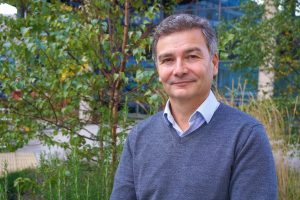Southampton’s Cancer Immunologists
The Centre for Cancer Immunology has encouraged collaboration and partnership with scientists from other parts of the University, who are all working towards finding a cure for cancer.
Below are some of the scientists and clinicians at the forefront of this exciting area of cancer research, based within the Centre for Cancer Immunology.
Our scientists who are leading the way in develop anti-cancer vaccines are based in the University’s Somers Building.
We are also working with scientists in other areas of the Faculty of Medicine, the WISH lab and the Institute of Life Sciences, based at the University’s Highfield campus. Click here to find out more about them.
Professor E. Sally Ward, Prof of Molecular Immunology & Director of Translational Immunology
Professor Ward’s current research includes the use of a combination of protein engineering, in vivo studies and fluorescence imaging to develop therapeutics to treat cancer and autoimmunity.
Recent paper: J.C. Kang, W. Sun, P Khare, M. Karimi, X. Wang, S. Yang, R. J. Ober, E.S. Ward (2019) Engineering a HER2-specific antibody–drug conjugate to increase lysosomal delivery and therapeutic efficacy. Nature Biotechnology. https://doi.org/10.1038/s41587-019-0073-7
To read full profile please visit the corporate site.
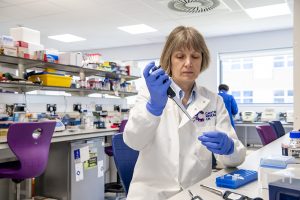
Professor Raimund Ober, Professor of Imaging and Biomedical Engineering
Professor Ober’s research interests relate to the development and application of engineering principles to problems in molecular/cellular biology, cancer therapeutics and immunology. Of particular interest is the development of new microscopy techniques and, more specifically, single molecule microscopy approaches.
Recent paper: E.A. Cohen, A.V. Abraham, S. Ramakrishnan and R.J. Ober (2019). Resolution limit of image analysis algorithms. Nature Communications. https://doi.org/10.1038/s41467-019-08689-x
To read full profile please visit the corporate site.
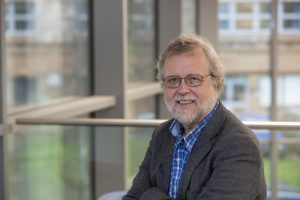
Professor Freda Stevenson, Professor of Immunology
Professor Stevenson is an immunologist aiming to apply molecular understanding to clinical problems. Her research focuses on B lymphocytes. It includes two areas: first, analysis of the ways in which B-cell tumour subsets behave, adding predictive power for patients; second, in developing strategies to target microenvironmental interactions and to activate anti-tumour immunity.
Recent paper: Valle-Argos, B., Chiodin, G., Bryant, D.J. et al. DC-SIGN binding to mannosylated B-cell receptors in follicular lymphoma down-modulates receptor signaling capacity. Sci Rep 11, 11676 (2021). https://doi.org/10.1038/s41598-021-91112-7
Freda K Stevenson, Francesco Forconi, Thomas J Kipps. Exploring the pathways to chronic lymphocytic leukemia. Blood. 2021 Sep 9;138(10):827-835. doi: 10.1182/blood.2020010029
To read full profile please visit corporate site
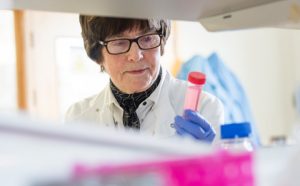
Dr Edd James, Associate Professor in Cancer Immunology
Dr James’ main research focuses on understanding the role of antigen processing and presentation in generating immune responses. This understanding supports key aspects important in developing new cancer immunotherapies such as cancer vaccines, identification of cancer antigens and inducing anti-cancer T cell responses.
Latest paper: Reeves, E., O. Wood, C. H. Ottensmeier, E. V. King, G. J. Thomas, T. Elliott, and E. James. 2019. HPV Epitope Processing Differences Correlate with ERAP1 Allotype and Extent of CD8(+) T-cell Tumor Infiltration in OPSCC. Cancer Immunol Res 7: 1202-1213
doi: 10.1158/2326-6066.CIR-18-0498
To read full profile please visit the corporate site
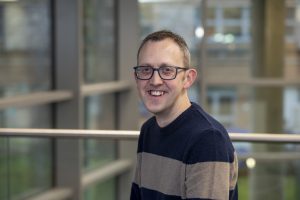
Peter Johnson, Professor of Medical Oncology
Peter Johnson’s research is into antibody treatments for cancer, especially malignant lymphoma. This involves understanding how to make lymphoma recognisable to the immune system and how to take new types of treatment from laboratory testing into the clinic.
Recent paper: Davies A, Cummin TE, Barrans S, … Johnson PWM. Gene-expression profiling of bortezomib added to standard chemoimmunotherapy for diffuse large B-cell lymphoma (REMoDL-B): an open-label, randomised, phase 3 trial.
Lancet Oncol. 2019; 20(5):649-662
To read full profile please visit the corporate site
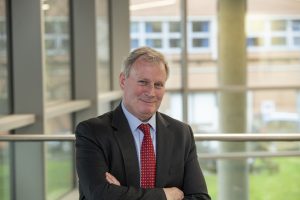
Professor Mark Cragg, Professor of Experimental Cancer Research
Professor Cragg’s main research focuses on antibody immunotherapy. He investigates how antibody therapeutics redirect and activate immune cells to attack cancer cells and develops new strategies to overcome resistance to these treatments. In recent years his group have focused on understanding and modulating Fc gamma receptors on the immune cells to improve antibody therapy as well as developing immune stimulatory antibodies.
Recent paper: Yu X, Cragg MS (2020) Engineered antibodies to combat viral threats. Nature. Dec;588(7838):398-399.
Yu X, Chan HTC, Fisher H, Penfold CA, Kim J, Inzhelevskaya T, Mockridge CI, French RR, Duriez PJ, Douglas LR, English V, Verbeek JS, White AL, Tews I, Glennie MJ, Cragg MS. (2020) Isotype Switching Converts Anti-CD40 Antagonism to Agonism to Elicit Potent Antitumor Activity. Cancer Cell. Jun 8;37(6):850-866.e7.
To read full profile please visit the corporate site
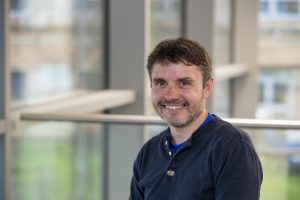
Professor Aymen Al-Shamkhani, Professor of Immunology
Professor Al-Shamkhani is interested in anti-cancer T cell responses and antibody therapeutics. His group investigates co-stimulatory receptors and signalling pathways that regulate T cell activation and differentiation into effector and memory cells, with a focus on developing strategies that promote anti-tumour immunity.
Recent paper: Buchan SL, Fallatah M, Thirdborough SM, Taraban VY, Rogel A, Thomas LJ, Penfold CA, He LZ, Curran MA, Keler T, Al-Shamkhani A. PD-1 Blockade and CD27 Stimulation Activate Distinct Transcriptional Programs That Synergize for CD8+ T-Cell-Driven Antitumor Immunity. Clin Cancer Res. 2018 May 15;24(10):2383-2394.
To read full profile please visit the corporate site
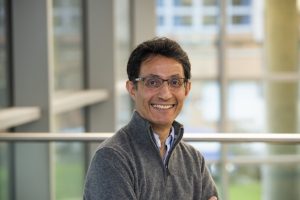
Dr Ali Roghanian, Lecturer in Cancer Immunotherapy
Dr Roghanian’s main research focuses on understanding mechanisms of tumour-mediated immunosuppression and the application of targeted therapies in novel humanized mouse models of human cancers to promote effective anti-tumour immunity.
Recent paper: Yeboah, M., Papagregoriou, C., Jones, D. C., Chan, H., Hu, G., McPartlan, J., Mockridge, C., Tews, I., Glennie, M., Thirdborough, S., Cragg, M., & Roghanian, A. (2020). LILRB3 (ILT5) is a myeloid cell checkpoint that elicits profound immunomodulation. JCI Insight, 5(18), [e141593]. https://doi.org/10.1172/jci.insight.141593
To read full profile please visit the corporate site
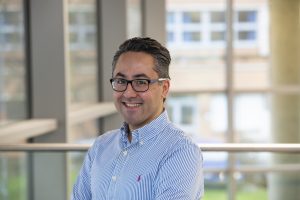
Dr Sean Lim, Associate Professor and Honorary Consultant in Haematological Oncology, CRUK Advanced Clinician Scientist Fellow
Dr Lim’s laboratory focuses on developing and accelerating new cancer immunotherapy approaches into clinic. In particular, she is interested in how T-cell stimulation with agonistic antibodies can be exploited to enhance the efficacy of current tumour-targeting antibodies.
Recent paper: Lim, S.H., Stuart, B., Joseph-Pietras, D. et al. Immune responses against SARS-CoV-2 variants after two and three doses of vaccine in B-cell malignancies: UK PROSECO study. Nat Cancer (2022). https://doi.org/10.1038/s43018-022-00364-3
To read full profile please visit the corporate site
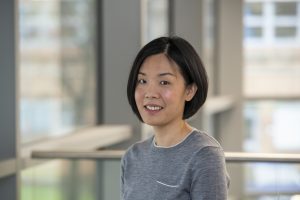
Stephen Beers, Professor of Immunology and Immunotherapy
Professor Beers leads a research group studying antibody drugs and their mechanisms of action. The group’s research is currently focussed on two main areas; the mechanisms of action of immunomodulatory mAb, and how the tumour microenvironment affects antibody effector function and how this might be manipulated to enhance patient outcomes.
Recent paper: Moreno-Vicente J, Willoughby JE, Taylor MC, Booth SG, English VL, Williams EL, Penfold CA, Mockridge CI, Inzhelevskaya T, Kim J, Chan HTC, Cragg MS, Gray JC, Beers SA. J Immunother Cancer. 2022 Jan;10(1):e003735. doi: 10.1136/jitc-2021-003735.PMID: 35017153
To read full profile please visit the corporate site
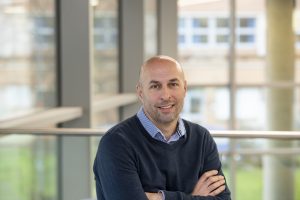
Dr Juliet Gray, Associate Professor in Paediatric Oncology
Dr Gray is a member of the NCRI Children’s Cancer and Leukaemia CSG Neuroblastoma Subgroup, the SIOP European Neuroblastoma Research Network and the UK Children’s Cancer and Leukaemia Group (CCLG) New Agents Group. She is the CCLG Clinical Trial Lead for the Southampton Paediatric Oncology centre and Chair of the Southampton Paediatric Chemotherapy Group.
Dr Gray’s main research interest is in the development of new immunotherapies to treat neuroblastoma, one of the commonest childhood cancers. Neuroblastoma is a tumour of neuroectodermal origin that usually develops in very young children. Unfortunately in the majority of children the disease is metastatic by the time of diagnosis, and survival rates for these children remain poor despite intensive conventional therapies.
To read full profile please visit the corporate site
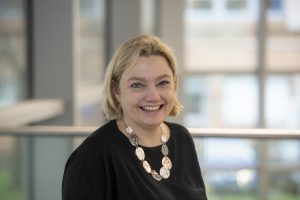
Dr Charles Birts, Lecturer in Antibody Therapeutics, Principle investigator in breast cancer research
Dr Birts’ research is focused on developing novel antibody-based therapies for targeting breast cancer. This work involves understanding the role of cell-surface glycans in the breast tumour microenvironment and the development of secondary breast cancers. He is also investigating how diet and nutrition can affect immune cell function within the tumour microenvironment to determine how we can use metabolic intervention to improve patient responses to antibody-based therapies.
Recent paper: Birts, C.N., Savva, C., Laversin, S.A. et al. Prognostic significance of crown-like structures to trastuzumab response in patients with primary invasive HER2 + breast carcinoma. Sci Rep 12, 7802 (2022). https://doi.org/10.1038/s41598-022-11696-6
To read the full profile visit the corporate site.
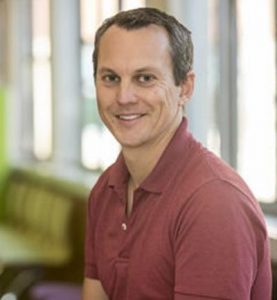
Yury Bogdanov, Lecturer in Transgenic Technologies
Dr Bogdanov leads a group within Cancer Sciences focused on the role of GABA receptors in immune system function. GABA is a small molecule that acts as a major inhibitory molecule in the central nervous system. It is also found in various organs and tumours. Our current hypothesis is that it represents an important part of tumour immunosuppressive microenvironment. The long term aim of our work is to develop strategies to augment current immunotherapy approaches with GABA receptor modulators to achieve better anti-tumour response.
Recent paper: Sparrow EL, James S, Hussain K, Beers SA, Cragg MS, Bogdanov YD. Activation of GABA(A) receptors inhibits T cell proliferation. PLoS One. 2021 May 20;16(5):e0251632.
To read full profile please visit the corporate site
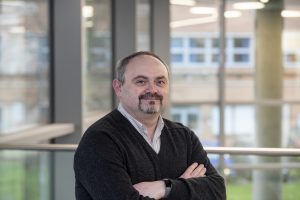
Dr Stephen Thirdborough, Senior Fellow in Systems Biology
Stephen Thirdborough is a computational immunologist with extensive experience of applying omics data analytics and network inference to systems modelling. His main research focuses on topological analyses of tumour networks in order to advance our understanding of the link between cancer metabolism and immune evasion.
Recent paper: Ottensmeier CH, Perry KL, Harden EL, Stasakova J, Jenei V, Fleming J, Wood O, Woo J, Woelk CH, Thomas GJ, Thirdborough SM. Upregulated Glucose Metabolism Correlates Inversely with CD8+ T-cell Infiltration and Survival in Squamous Cell Carcinoma. Cancer Res. 2016; 76(14):4136-48. doi: 10.1158/0008-5472
To read full profile please visit the corporate site
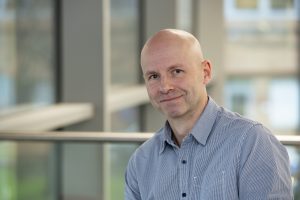
Professor Gareth Griffiths, Director of the Southampton Clinical Trials Unit
Professor Griffiths’s research area is clinical trials. He has been involved in working with researchers from around the UK in the development and conduct of clinical trials in immunotherapy. These trials range from first-in-human phase 1 trials to determine new immunotherapy doses to phase III practice changing III trials, in a variety of cancers.
Recent paper: Fennell, D. A., Kirkpatrick, E., Cozens, K., Nye, M., Lester, J., Hanna, G.,……, Griffiths, G. (2018). CONFIRM: a double-blind, placebo-controlled phase III clinical trial investigating the effect of nivolumab in patients with relapsed mesothelioma: study protocol for a randomised controlled trial. Trials, 19(233), 1-10.
To read full profile please visit the corporate site
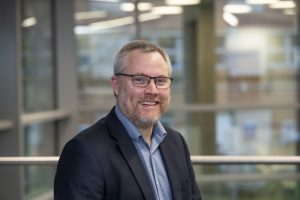
Professor Gareth Thomas, Chair of Experimental Pathology
Professor Thomas’s main research focuses on the role of cancer-associated fibroblasts (CAF) in shaping the tumour immune microenvironment, particularly the promotion of tumour immune escape. The work investigates the molecular mechanisms regulating CAF differentiation and function, characterising CAF phenotypes and interactions with immune cells; this translates clinically into the development of CAF-specific targeted therapies to improve vaccine- and checkpoint-based immunotherapy (https://clinicaltrials.gov/ct2/show/NCT0532365).
Recent paper: K Ford, CJ Hanley, M Mellone, C Szyndralewiez, F Heitz, P Wiesel, O Wood, M Machado, M Lopez, A Ganesan, C Wang, A Chakravarthy, T Fenton, EV King, P Vijayanand, CH Ottensmeier, A Al-Shamkhani, N Savelyeva, GJ Thomas (2020). NOX4 inhibition potentiates immunotherapy by overcoming cancer-associated fibroblast-mediated CD8 T-cell exclusion from tumours. Cancer Research 80 (9): 1846-60 https://doi.org/10.1158/0008-5472.CAN-19-3158
To read full profile please visit the corporate site.
